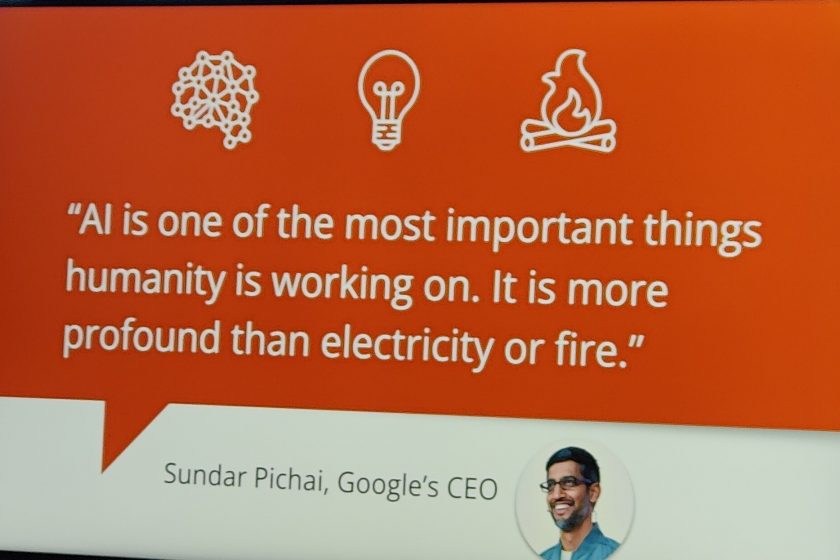At a future looking co-working event at the beautiful “Ulvhälls Herrgård” in Strängnäs, it was possible to listen to two inspirational speeches about Artificial Intelligence (AI). First out was Ola Ahlvarsson, the founder of the coworking establishment EpiCenter and a serial entrepreneur, who presented several examples of the life of an entrepreneur and the digitalisation. One particularly noteworthy reflection was the development of virtual assistants like Siri. Previously, if someone asked the assistant where to find a bridge to jump from for suicidal purposes, the response would provide information on the nearest bridges. Today, however, the response would likely direct the person to contact a helpline to prevent suicide. The possibilities with different kinds of AI solutions are rapidly changing. The amount of data training these solutions are enormous and constantly growing. Solutions that were almost impossible six years ago can today be solved by simple more standardized tools.

One example mentioned was Tesla cars, that quickly are getting more advanced using several cameras to constantly analyze the environment, making it much safer to travel with a self-driving car compared to a manual driven car. He predicted that in a couple of years almost no-one will consider it safe to sit in a car driven manually, that it would be like taking a horse carriage ride on the motorway.
Different AI trends were also in focus in the presentation by Alexander Fred-Ojala, who is CEO and co-founder of Master Exchange as well as AI Research Director at UC Berkely. He explained three different AI application areas: computer vision, natural language processing (NLP) and generative models and presented several interesting examples.
In the area of NLP, Alexander presented further information about the GPT3 and the release of the chatGPT that has been all around the news the last couple of months. Thanks to the exploding amount of training material, the GPT3 could be built with 175 billion model parameters, compared to approximately 17,000 model parameters for the previous NLP model. This has resulted in a completely new version of the online chat solution, the chatGPT, that can write short essays and respond to a wide variety of questions. This is a complete revolution compared to all previous chatbots.

The interesting issue now is how these NLP models can be used in the legal field. Alexander just touched this area with one practical example. He finds it difficult to read all the lengthy legal contracts and therefore he has been trying to use the chatGPT to simplify these contracts, and here is an example of how legal text is converted to plain English making the contracts much more readable. Just remember that this was almost impossible six years ago and now it is possible with a free online chat solution. In this rapidly development of AI tools, what will be possible in a couple of years?

(The quote about AI is from Sundar Pichai, Google’s CEO.)

